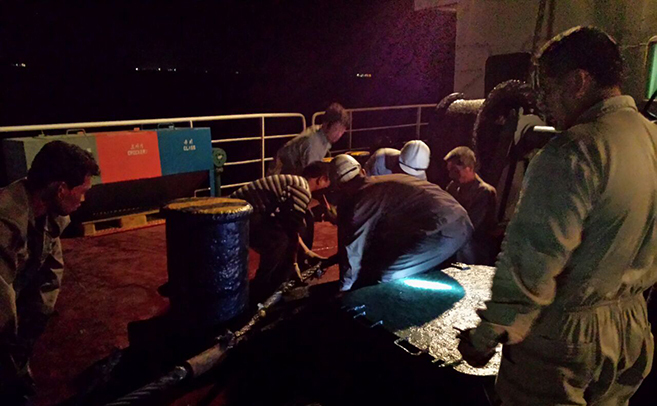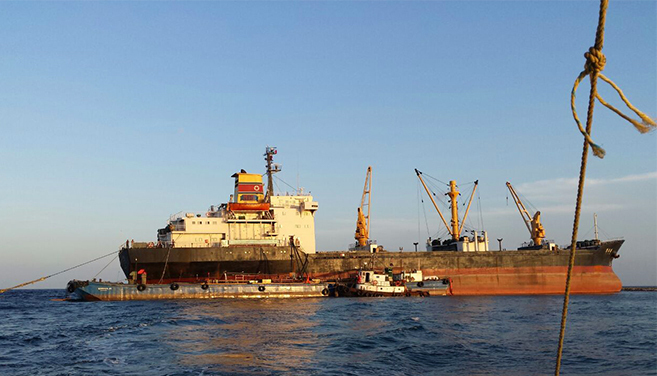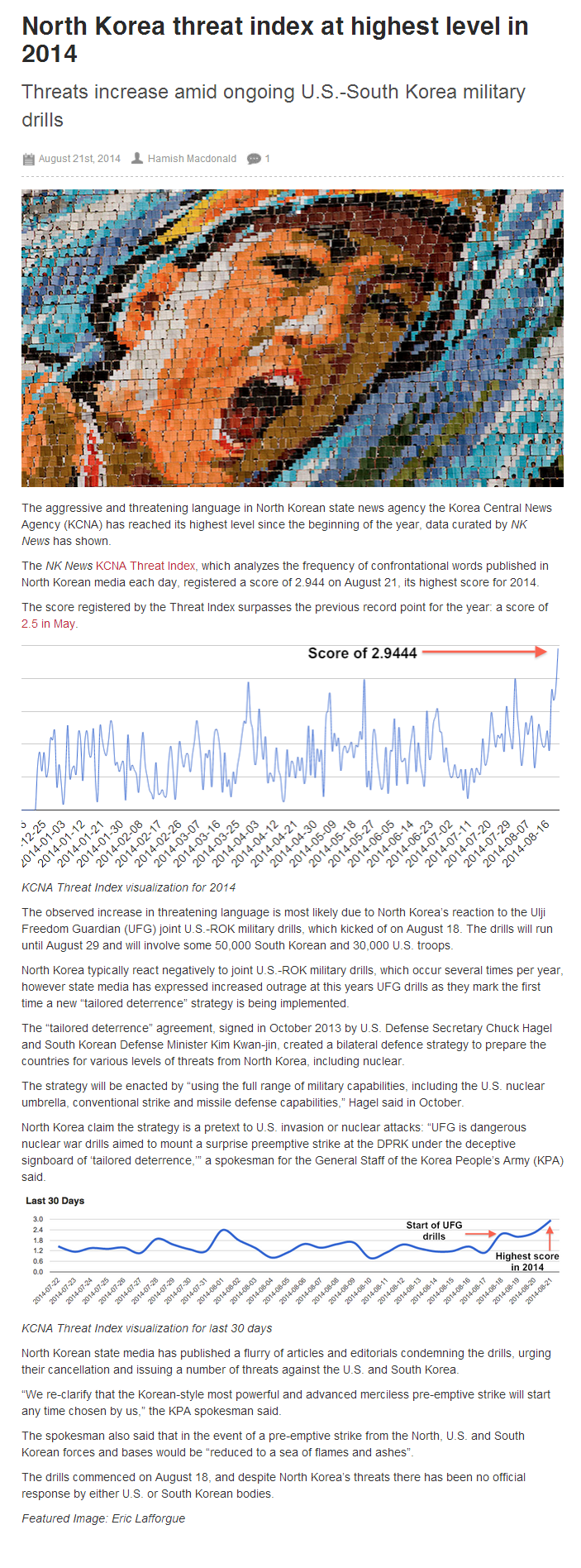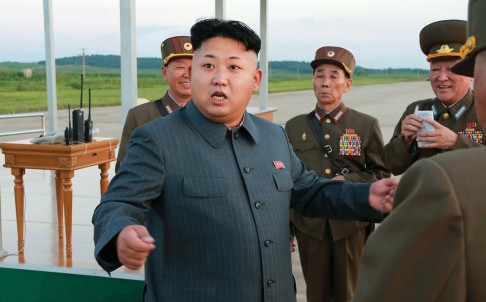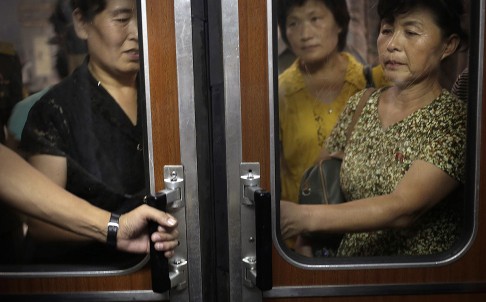South Korea to give $13 million in aid to North
South Korea offer humanitarian aid in effort to improve cross border relations
August 12th, 2014
Hamish Macdonald

South Korea will offer $13.3 million in aid to programmes in North Korea, according to the Ministry of Unification (MOU) on Monday, amid a push to improve cross border relations.
The Ministry of Unification says the funds will be delivered through international aid agencies, with a focus on providing food and medical assistance to vulnerable populations in the North.
“We will provide $7 million to the World Food Programme for nutritional assistance to mothers and children in the North,” MOU spokesman Kim Eui Do told reporters at a press conference on Monday.
“We will also offer $6.3 million through the World Health Organization for medicine, improvement of medical facilities and medical training programs,” he added.
The assistance package from the MOU follows the $3 million in aid previously given to NGOs in July and will be financed through the Inter-Korean Cooperation Fund.
The offer comes amid a push by the South Korean government to improve ties with North Korea, with the South Korean government also offering on Monday to hold high-level meetings on the topic of family reunions for those separated by the Korean War.
“In short, it is good news. It appears that the Park Geun Hye administration is inclined to do some deals with North Korea – they recently hinted that the May 24 sanctions might be lifted,” Dr. Andrei Lankov of Kookmin University told NK News.
“It is likely that this aid is being used partly to create a better image of the South amongst the North Korean people. It will be marginal in its positive effects, but such effects are nonetheless to be welcomed,” Lankov added.
The offers also follows on from Thursday’s inaugural meeting of South Korea’s Preparatory Committee for Reunification, where Park urged members to increase cross border and humanitarian exchanges with the North.
North Korea has yet to respond to the offers.
Featured Image: Eric Lafforgue


